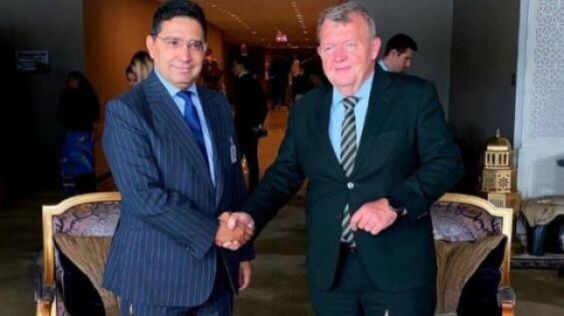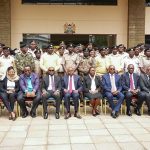Denmark has joined the increasing number of nations who have stated openly that they support Morocco’s Autonomy Plan.
Moroccan Foreign Minister Nasser Bourita met with his Danish counterpart, Lars Løkke Rasmussen, on the sidelines of the 79th session of the UN General Assembly in New York where he declared his support for Morocco’s Autonomy plan.
“In support of autonomy under Moroccan sovereignty, the Kingdom of Denmark considers the Autonomy Plan proposed by Morocco in 2007 to be a serious and reliable contribution to the ongoing international process and a solid basis for a mutually agreed-upon solution among all parties,” Morocco’s Foreign Affairs Ministry conveyed Denmark’s position as saying.
The Scandinavian nation’s support of Morocco’s ambition for autonomy is a new diplomatic victory for Rabat in a world where trends are constantly changing and going outside the conventional Euro-Mediterranean area of influence.
Morocco’s sovereignty over its southern provinces is gaining pace internationally because to this support.
In 2007, Morocco presented the autonomy plan to the UN Security Council, proposing that the Sahara be recognised as a semi-autonomous territory under Moroccan authority.
This will provide local communities complete autonomy over the management of their social, economic, and political matters, with the central Moroccan government continuing to have jurisdiction over matters of defence and diplomacy.
The effort has gained support over time from an increasing number of nations across several continents and regions.
This past August, President Emmanuel Macron of France became the latest member of this expanding list, emphasising in a letter to King Mohammed VI that Western Sahara’s present and future ‘come within the framework of Moroccan sovereignty’.
Finland, another country in the Nordic area, has endorsed Morocco’s drive for autonomy, calling it a “good basis” for resolving the Sahara conflict.
The Scandinavian nation reaffirmed its support for the autonomy idea this past August, describing it as the best practical foundation for resolving the conflict in the long run.
Denmark has become the 18th European nation to formally recognise Morocco’s authority over the disputed area by expressing support for the Autonomy Plan.
The number of nations that have done so quickly is increasing, demonstrating the potency of Moroccan diplomacy.
Foreign ministers frequently commend Morocco for its leadership in the area and recognise its revolutionary development programs in the southern regions.
This increased support, however, coincides with Morocco’s more aggressive declaration that it will not accept any settlement that deviates from the Autonomy Plan framework.
In his speech to the 79th UN General Assembly earlier this week, Moroccan President Aziz Akhnnouch reiterated this stance.
He emphasised the necessity for a compromise tempered by the UN and Algeria’s full participation in any political negotiations, saying that the autonomy idea is the only way to resolve the conflict over Western Sahara.
As per Akhannouch, the increasing backing conveys a “unambiguous message to the other parties and the United Nations that the time has arrived to proceed towards a political resolution grounded in this framework, via a sequence of roundtable talks, through UN Security Council resolutions.”





